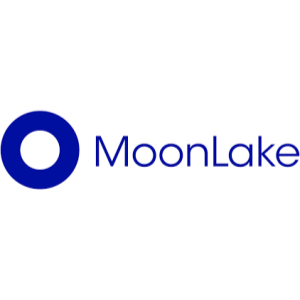MoonLake announces significant improvements with Nanobody® sonelokimab over 24 weeks in active psoriatic arthritis (PsA) and other important updates at its R&D Day

MoonLake announces significant improvements with Nanobody® sonelokimab over 24 weeks in active psoriatic arthritis (PsA) and other important updates at its R&D Day
- Positive 24-week data from the ARGO trial of sonelokimab in PsA:
- Significant improvements observed across all key outcomes, including approximately
60% of patients treated with sonelokimab achieving an ACR50 response at week 24 - Unprecedented multi-domain responses across joints, skin and other domains, including up to
52% of patients achieving ACR50+PASI100 and up to61% of patients achieving Minimal Disease Activity (MDA), supporting potential best-in-class profile of sonelokimab - Monthly maintenance with 60mg or 120mg doses showed leading responses above TNF reference arm across all key outcomes including in higher treatment goals (ACR70, PASI100, composites) – 120mg added benefit for specific patient subgroups
- Low discontinuation rate around
5% and safety profile of sonelokimab consistent with previously reported studies with no new safety signals - Update on sonelokimab in hidradenitis suppurativa (HS):
- Following interactions with the FDA and EMA, MoonLake intends to commence Phase 3 trials in HS in Q2 2024, under the VELA program; the program is expected to enroll 800 patients and reflect a similar protocol design to that used in the MIRA Phase 2 trial, with top-line primary endpoint data expected as early as mid-2025
- Real-world data indicates that at least 2 million Americans have been diagnosed with HS as of 2023, highlighting a significant unmet need and impact on healthcare systems, and a market opportunity exceeding
$10b n by 2035
- MoonLake further announces that it will imminently commence four additional clinical trials of sonelokimab across dermatology, and rheumatology, including innovative trials in palmo-plantar pustulosis, juvenile HS and seronegative spondyloarthritis
- The Company is hosting an R&D Day on Sunday, March 10 at 09:00 PDT/12:00 EDT/17:00 CET via webcast (registration link below), alongside the American Academy of Dermatology (AAD) annual meeting
ZUG, Switzerland, March 10, 2024 – MoonLake Immunotherapeutics (“MoonLake”; Nasdaq: MLTX), a clinical-stage biotechnology company focused on creating next-level therapies for inflammatory diseases, today announces that continued treatment with Nanobody® sonelokimab led to significant improvements across all key outcomes at 24-week data from the ARGO trial in psoriatic arthritis (PsA) and other important R&D updates. These updates will be presented and discussed in detail at the Company’s R&D Day to be held today, Sunday, March 10 (see access details below).
Positive 24-week data from the ARGO trial in PsA
The ARGO trial, which involved 207 patients with active PsA, demonstrated that the primary endpoint, the American College of Rheumatology (ACR) 50, continued to improve from week 12 and exceeded
Treatment with sonelokimab resulted in unprecedented improvements in composite scores that reflect responses in different domains simultaneously. ACR50+PASI90 up to
The safety profile of sonelokimab was consistent with previous trials with no new safety signals detected. The discontinuation rate of the second part of ARGO remained low at
Kristian Reich, MD, PhD, Founder and Chief Scientific Officer at MoonLake, commented: “These positive results from the ARGO trial at week 24, showing that continued treatment with sonelokimab led to significant improvements across all key outcomes, reinforce the advantages of using a smaller biologic with albumin-binding capability to effectively inhibit IL-17F in addition to IL-17A for the treatment of deep tissue inflammation. We are particularly grateful to the patients and investigators who participated in our Phase 2 program and look forward to initiating our Phase 3 trials in PsA and HS this year.”
Professor Joseph F. Merola, MD, MMSc, Founding President of the Psoriasis and Psoriatic Arthritis Clinics Multicenter Advancement Network Consortium (PPACMAN), added: “There is a vital need for new treatment options for psoriatic arthritis - a chronic, inflammatory, recurrent, and debilitating multidomain disease that has profound impact across many aspects of patients’ lives. It is highly encouraging to see that the positive high clinical responses across joint and skin endpoints and stringent composite measures, such as minimal disease activity, observed as early as week 12 with sonelokimab were further increased through week 24.”
The 24-week results build upon the 12-week results announced in November 2023. Full results from the ARGO trial will be submitted for publication in a peer-reviewed medical journal. Sonelokimab is not yet approved for use in any indication.
HS positive regulatory status and market opportunity
MoonLake has recently announced the successful outcome of its end-of-Phase 2 interactions with the U.S. Food and Drug Administration (FDA) the E.U. European Medicines Agency (EMA), with both regulatory bodies supporting MoonLake’s proposed approach for advancing its Phase 3 program of the Nanobody® sonelokimab in hidradenitis suppurativa (HS). During the R&D Day, the Company will provide further details on trial design, expectations for the single 120mg dose being tested and timelines for this program, named VELA which is set to enroll 800 patients.
Furthermore, the Company will share findings from a recent analysis of US real-world data pertaining to the HS market.i It revealed that between 2016 and 2023, two million unique patients were diagnosed and treated for HS, with an average of 240,000 new patients each year as per claims. This corresponds to a ~
Professor Kenneth B. Gordon, Chair of Dermatology at the Medical College of Wisconsin, commented: “The positive data that is being generated for the Nanobody® sonelokimab across chronic inflammatory indications, including HS, is raising the bar on the level of outcomes that can be achieved for patients. Patients are waiting for new treatment options with a prolonged effect, and the start of the Phase 3 trials is bringing hope that sonelokimab could be a promising potential option to the many patients that live and suffer with HS, a disease that has not received the attention it deserves until recently.”
New indications
MoonLake further announces that it will imminently commence four additional development programs, across dermatology and rheumatology where IL-17A and IL17-F inhibition in deep tissues has the opportunity to lead among all therapies.
In dermatology, Phase 2 work is expected to be initiated in palmo-plantar pustulosis (PPP), a debilitating disease affecting a significant number of patients (estimated
In rheumatology, MoonLake will also extend its development work in seronegative spondyloarthritis. Phase 2 work in radiographic and non-radiographic axial spondyloarthritis (axSpA) is expected to start this year, with trials featuring an innovative design complementing traditional clinical outcomes with modern imaging techniques, adding two new indications to the pipeline. The Company plans to also run an additional trial in PsA, to link the impact of sonelokimab in traditional clinical outcomes (e.g., ACR50) with objective imaging measurements in different domains. The new axSpA and PsA studies are designed to employ cutting-edge MRI-PET imaging.
Jorge Santos da Silva, PhD, Founder and Chief Executive Officer at MoonLake, said: “The robust data that we continue to amass with our Nanobody® shows that sonelokimab has the potential to be a best-in-class product in the fast-growing inflammation field, providing us with conviction to help even more patients by expanding into further indications beyond HS and PsA. With the positive feedback received to date from the FDA and EMA, together with our strong financials, we are now rapidly pursuing plans to commence Phase 3 trials in both HS and PsA before the end of this year and are expanding the development pipeline with the aim of elevating care with our next-level therapies via truly innovative clinical trials.”
R&D Day today, Sunday, March 10
MoonLake will hold an R&D Day today, Sunday, March 10 alongside the AAD annual meeting. The event will take place from 09:00 – 11:30 PDT/12:00 – 14:30 EDT/17:00 – 19:30 CET at Hotel Westin Bayview, San Diego and will be webcast for virtual attendees.
The R&D Day will highlight the 24-week ARGO data, discuss regulatory interactions and paths to Phase 3, and other important business updates from MoonLake’s executive team including:
- Analysis of the HS and PSA market opportunities and leadership potential for sonelokimab.
- Pipeline updates and details of additional catalysts for 2024 and 2025, including new indications to be pursued.
- Summary and financials.
The event will feature presentations from leading clinicians in dermatology and rheumatology. Professor Joseph Merola, Chair of Dermatology, Professor of Dermatology, Medicine and Rheumatology, UT Southwestern Medical Center and Professor Kenneth B. Gordon, Chair of Dermatology at the Medical College of Wisconsin, will share their perspectives on the potential of MoonLake’s investigational Nanobody® sonelokimab in IL-17A and IL-17F driven inflammatory diseases.
A live Q&A session involving all presenters will follow the event. Register to attend either the in-person event or webcast here. A recording and additional details will be available on the Events & Presentations section of the Company’s website at www.ir.moonlaketx.com.
Late breaker presentation of the 24-week data from the MIRA trial in HS at the AAD
As announced in March 2024, the 24-week data from the Phase 2 MIRA trial with Nanobody® sonelokimab in moderate to severe HS, will be presented by Professor Brian Kirby MD, FRCPI on March 10 at 14:00 PDT/ 17:00 EDT / 22:00 CET during the late breaking research session 2 (S050) in room 20B at the AAD Annual Meeting, taking place from March 8-12, in San Diego, California.
- Ends -
About Psoriatic Arthritis
Psoriatic arthritis (PsA) is a chronic and progressive inflammatory arthritis associated with psoriasis primarily affecting the peripheral joints. The clinical features of PsA are diverse, involving pain, swelling, and stiffness of the joints, which can result in restricted mobility and fatigue. PsA occurs in up to
About the ARGO trial
The ARGO trial (M1095-PSA-201) is a global, randomized, double-blind, placebo-controlled trial to evaluate the efficacy and safety of the Nanobody® sonelokimab, administered subcutaneously, in the treatment of adult patients with active PsA. The trial is designed to evaluate different doses of sonelokimab, with placebo control and adalimumab as an active reference arm. The primary endpoint of the trial is the percentage of participants achieving ≥
About Hidradenitis Suppurativa
Hidradenitis suppurativa (HS) is a severely debilitating chronic skin condition resulting in irreversible tissue destruction. HS manifests as painful inflammatory skin lesions, typically around the armpits, groin, and buttocks. Over time, uncontrolled and inadequately treated inflammation can result in irreversible tissue destruction and scarring. The disease affects 0.05–
About the MIRA trial
The MIRA trial (M1095-HS-201) is a global, randomized, double-blind, placebo-controlled trial to evaluate the efficacy and safety of the Nanobody® sonelokimab, administered subcutaneously, in the treatment of adult patients with active moderate-to-severe hidradenitis suppurativa. The trial recruited 234 patients, with the aim to evaluate two different doses of sonelokimab (120mg and 240mg) with placebo control and adalimumab as an active reference arm. The primary endpoint of the trial is the percentage of participants achieving Hidradenitis Suppurativa Clinical Response 75 (HiSCR75), defined as a ≥
About Sonelokimab
Sonelokimab (M1095) is an investigational ~40 kDa humanized Nanobody® consisting of three VHH domains covalently linked by flexible glycine-serine spacers. With two domains, sonelokimab selectively binds with high affinity to IL-17A and IL-17F, thereby inhibiting the IL-17A/A, IL-17A/F, and IL-17F/F dimers. A third central domain binds to human albumin, facilitating further enrichment of sonelokimab at sites of inflammatory edema.
Sonelokimab is being assessed in two trials, the Phase 2 ARGO trial in PsA and the Phase 2 MIRA trial in HS. In June 2023, topline results of the MIRA trial (NCT05322473) at 12 weeks showed that the trial met its primary endpoint, the Hidradenitis Suppurativa Clinical Response (HiSCR)75, which is a higher measure of clinical response versus the HiSCR50 measure used in other clinical trials, setting a landmark milestone. In October 2023, the full dataset from the MIRA trial at 24 weeks showed that maintenance treatment with sonelokimab led to further improvements in HiSCR75 response rates and other clinically relevant outcomes. In November 2023, MoonLake announced positive top-line results from its global Phase 2 ARGO trial evaluating the efficacy and safety of the Nanobody® sonelokimab in patients with active PsA. The trial met its primary endpoint with a statistically significant greater proportion of patients treated with either sonelokimab 60mg or 120mg (with induction) achieving an American College of Rheumatology (ACR) 50 response compared to those on placebo at week 12. All key secondary endpoints in the trial were met for the 60mg and 120mg doses with induction.
Sonelokimab has also been assessed in a randomized, placebo-controlled Phase 2b trial (NCT03384745) in 313 patients with moderate-to-severe plaque-type psoriasis. High threshold clinical responses (Investigator’s Global Assessment Score 0 or 1, and Psoriasis Area and Severity Index 90/100) were observed in patients with moderate-to-severe plaque-type psoriasis. Sonelokimab was generally well tolerated, with a safety profile similar to the active control, secukinumab (Papp KA, et al. Lancet. 2021; 397:1564-1575).
In an earlier Phase 1 trial in patients with moderate-to-severe plaque-type psoriasis, sonelokimab has been shown to decrease (to normal skin levels) the cutaneous gene expression of pro-inflammatory cytokines and chemokines (Svecova D. J Am Acad Dermatol. 2019;81:196–203).
About Nanobodies®
Nanobodies® represent a new generation of antibody-derived targeted therapies. They consist of one or more domains based on the small antigen-binding variable regions of heavy-chain-only antibodies (VHH). Nanobodies® have a number of potential advantages over traditional antibodies, including their small size, enhanced tissue penetration, resistance to temperature changes, ease of manufacturing, and their ability to be designed into multivalent therapeutic molecules with bespoke target combinations.
The terms Nanobody® and Nanobodies® are trademarks of Ablynx, a Sanofi company.
About MoonLake Immunotherapeutics
MoonLake Immunotherapeutics is a clinical-stage biopharmaceutical company unlocking the potential of sonelokimab, a novel investigational Nanobody® for the treatment of inflammatory disease, to revolutionize outcomes for patients. Sonelokimab inhibits IL-17A and IL-17F by inhibiting the IL-17A/A, IL-17A/F, and IL-17F/F dimers that drive inflammation. The company’s focus is on inflammatory diseases with a major unmet need, including hidradenitis suppurativa and psoriatic arthritis – conditions affecting millions of people worldwide with a large need for improved treatment options. MoonLake was founded in 2021 and is headquartered in Zug, Switzerland. Further information is available at www.moonlaketx.com. The terms Nanobody® and Nanobodies® are trademarks of Ablynx, a Sanofi company.
Cautionary Statement Regarding Forward Looking Statements
This press release contains certain “forward-looking statements” within the meaning of the U.S. Private Securities Litigation Reform Act of 1995. Forward-looking statements include, but are not limited to, statements regarding MoonLake’s expectations, hopes, beliefs, intentions or strategies regarding the future including, without limitation, statements regarding: plans for clinical trials and research and development programs; including the initiation of clinical programs in new indications; anticipated support from regulatory agencies with respect to the Company’s development plans, anticipated size and timing of enrollment for the VELA trial, the sufficiency of data from the VELA trial to support regulatory filings in the US and EU, the anticipated trial design for the VELA trial and the timing of expected readouts; our expectations regarding the potential market size for HS; the Company’s plans with respect to the commencement of a Phase 3 trial in PsA; and the efficacy of our products, if approved, including in relation to other products. In addition, any statements that refer to projections, forecasts, or other characterizations of future events or circumstances, including any underlying assumptions, are forward-looking statements. The words “anticipate,” “believe,” “continue,” “could,” “estimate,” “expect,” “intend,” “may,” “might,” “plan,” “possible,” “potential,” “predict,” “project,” “should,” “would” and similar expressions may identify forward-looking statements, but the absence of these words does not mean that statement is not forward looking.
Forward-looking statements are based on current expectations and assumptions that, while considered reasonable by MoonLake and its management, as the case may be, are inherently uncertain. New risks and uncertainties may emerge from time to time, and it is not possible to predict all risks and uncertainties. Actual results could differ materially from those anticipated in such forward-looking statements as a result of various risks and uncertainties, which include, without limitation, risks and uncertainties associated with MoonLake’s business in general and limited operating history, difficulty enrolling patients in clinical trials, and reliance on third parties to conduct and support its clinical trials, and the other risks described in or incorporated by reference into MoonLake’s Annual Report on Form 10-K for the year ended December 31, 2023 and subsequent filings with the Securities and Exchange Commission.
Nothing in this press release should be regarded as a representation by any person that the forward-looking statements set forth herein will be achieved or that any of the contemplated results of such forward-looking statements will be achieved. You should not place undue reliance on forward-looking statements in this press release, which speak only as of the date they are made and are qualified in their entirety by reference to the cautionary statements herein. MoonLake does not undertake or accept any duty to release publicly any updates or revisions to any forward-looking statements to reflect any change in its expectations or in the events, conditions or circumstances on which any such statement is based.
MoonLake Immunotherapeutics Investors
Matthias Bodenstedt, CFO
info@moonlaketx.com
MoonLake Immunotherapeutics Media
Patricia Sousa
media@moonlaketx.com
ICR Consilium
Mary-Jane Elliott, Namrata Taak, Ashley Tapp
Tel: +44 (0) 20 3709 5700
MoonLake@consilium-comms.com
i © 2023 Komodo Health, Inc. All rights reserved. Reprinted with permission.








